Ideas are in four categories
Competences: valuing sustainability, supporting fairness, promoting nature
Competences: systems thinking, critical thinking, problem framing
Competences: futures literacy, adaptability, exploratory thinking
Competences: political agency, collective action, individual intiative
Embodying sustainability values
Competence: Promoting nature, Valuing sustainability, Critical thinking, Problem framing
Showing shocking videos for students about plastic in the see, suffering animals, dirty lakes, dry landscape, animals/people escaping the fire, and how much plastic we have at home.
Show videos for your class that are adequate for their age. The older the student is, the more these scary movies will be affective. However, we need to be careful with young students’ emotions. Young people in particular can be very sensitive and might feel a great responsibility for global warming and improving the situation on Earth.
Sources
Competence: Promoting nature, Critical thinking
Ask students to take the plastic to school, discuss how they can recycle plastic, the different type of plastic, and what happens with the plastic in the recycle centre.
Additional activity to strengthen critical thinking: Ask students to collect their plastic waste for a week, and bring to school or take photos and make a photo collage.
Sources
Competence: Promoting nature
Discussions about gardening activities are recommended; beekeeping and growing vegetables can be topics. Additional visits to school gardens, urban parks or national parks can be beneficial.
Sources
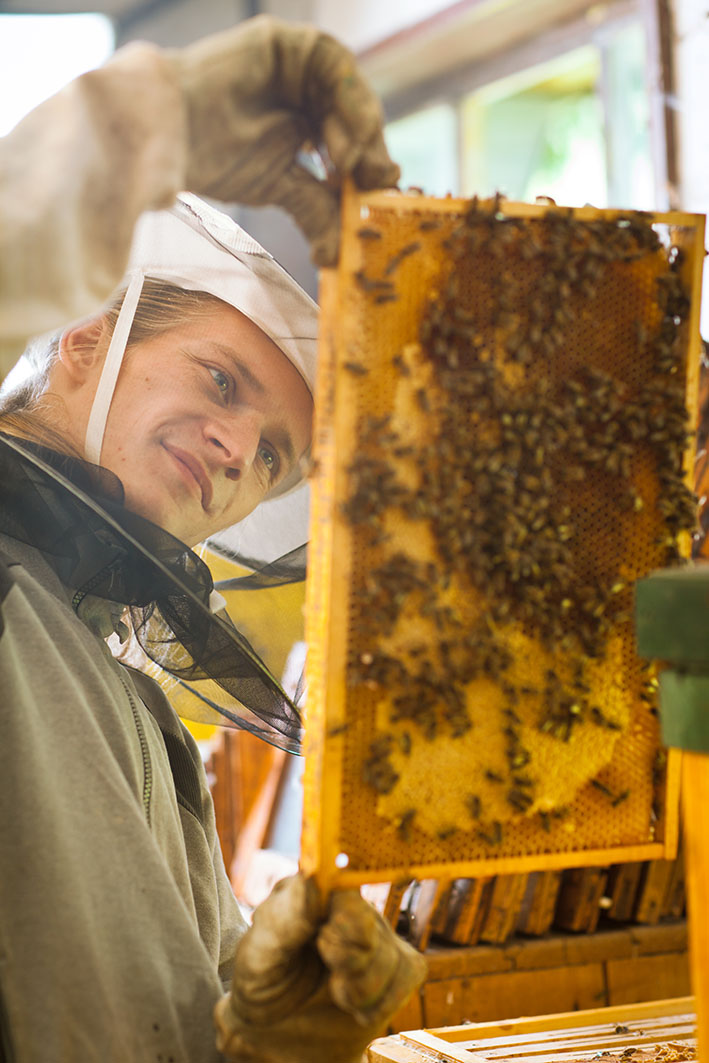
Competence: Promoting nature
Debate activities and topics for conversations in the classroom about the relationship between humans and nature.
Animal protection is also interesting topic to discuss. For example, in case of the tourist photos of people and tigers, the animals are drugged to accept to be cuddled by humans.
- An open statement can be that people living in the city don´t have the knowledge about nature. (Don’t understand it, so they don’t appreciate it). But do all people on the countryside appreciate nature? Maybe sometimes (not always!) the people in the countryside see nature more as resource instead of an ecosystem. Maybe the appreciation is not only dependent on where one lives, but on other things? What could those other things be?
- What are the benefits of ecotourism? What animals and environments could ecotourism save in your country?
- Another topic can be the complexity of natural ecosystems and how they can be easily damaged by ignorance. An example for this topic is the case of the pheasants. People think that pheasants are naturally occurring but, in fact they are an alien species introduced for those with hunting hobbies. They are invasive and destroy other essential creatures that are part of the ecosystem.
- Animal protection is also interesting topic to discuss. For example, in case of the tourist photos of people and tigers, the animals are drugged to accept to be cuddled by humans.
Sources
Competence: Promoting nature, Systems thinking
Discussions about food provide a good example not only for students of catering but for all students, because we all eat daily, and it is easy to connect all aspects of sustainability to food:
- ecological (e.g. environmental impacts on climate, biodiversity, eutrophication etc.),
- economical (e.g. fair price to producers, also availability to all, division of revenue in food chain),
- social (e.g. famine, availability of healthy food),
- cultural (e.g. maintaining food cultures, maintaining landscapes and local cultures on rural areas).
Sources
Competence: Promoting nature, Systems thinking
Lifecycles are a good way to describe and visualize the (environmental) impacts of a product/service, and interactive tools are an excellent means of engaging students with a topic. Storytelling activity about the lifecycle of products with the help of QR codes can be a good tool.
Sources
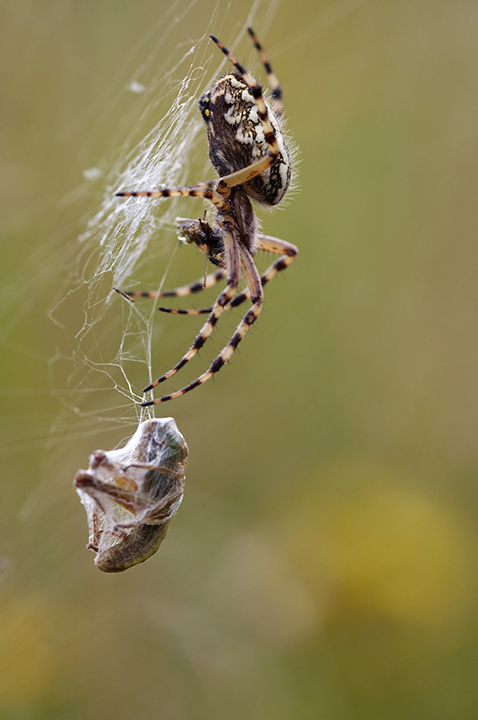
Competence: Promoting nature, Critical thinking, Collective action
Visiting vegetable gardens, discussing the provenance of food and the relevance of relationship with suppliers can be good examples. At the commis chef programme at Cork ETB, from the beginning, sourcing high quality locally produced foods is emphasised. This minimizes food miles, waste and helps to nurture a circular economy. It also showcases to the students the extraordinary products we can draw upon. In addition, the sustainability of relationships is key to ensuring a strong supply chain that can give a business an edge. They show the students how to start, nurture and maintain these relationships whether with a local butcher, fishmonger, or greengrocer. They are on first-name terms with many of their suppliers, who they trust, and they know will do their utmost for them. They also have close relationships with many of the businesses their students work in and in turn, these businesses help them.
Additional activity to strengthen critical thinking: watch videos of foods around the world. See what ingredients they use: are the products local or global?
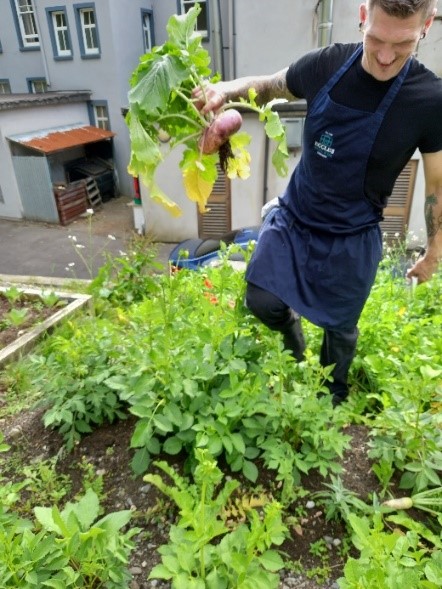
Competence: Promoting nature
Spend time with the students in the forest, do outdoor activities. This way, the definition and types of ecosystem evaluation can be explained. In addition, controversy about the ecosystem services can also be discussed.
Sources

Competence: Promoting nature
Hotels and restaurants with grounds should consider kitchen gardens for fruit and vegetable production and managing for wildlife instead of manicured unnatural landscaping. Teaching and learning activities (e.g. maintaining kitchen garden at the school) that promote the value of this approach in hotel management programmes should be considered.
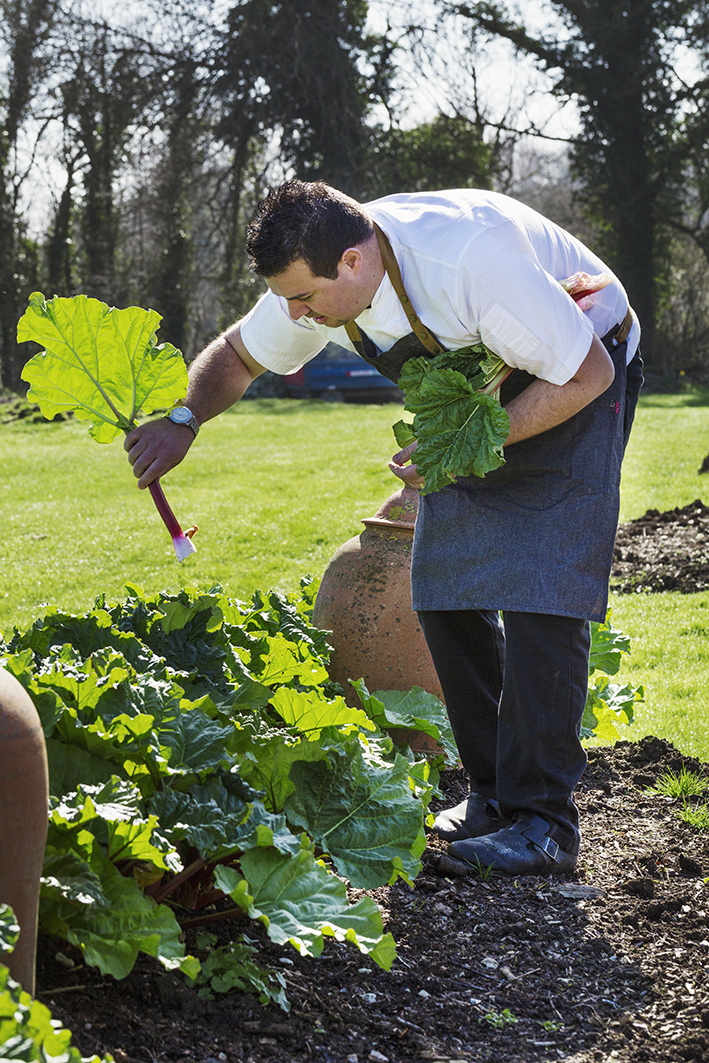
Competence: Promoting nature
Topics and questions to discuss and share ideas and opinions about seasonal approach in the classroom:
Nature-based activities: Think about open-air activities. Can they be survival techniques?
- Local ingredients: Think about what seasonal foods in your region means.
- Climate change: Teach about the impacts of climate change on economic scenarios. For example, ski resorts might have shorter seasons.
- Seasonal activities for tourists: Think about possible environmentally friendly actions. How can you transfer this to local business? Are there any money-saving activities?
- Nature-based activities: Think about open-air activities. Can they be survival techniques?
Sources
Competence: Promoting nature, Political agency
Discussions with the group can be made about the importance of the water quality with showing different cases. If there’s any problem with water quality, who is responsible for the pollution and is there anything that students can do? Think about accountability, citizen engagement or volunteering. Taking the class outside to a nearby lake or river and testing the pH of the water can also bring the students closer to nature and learn to appreciate it. If possible, combine the activity with learning about what we can find in nature to use in the cooking for example.

Competence: Supporting fairness, Systems thinking, Problem framing, Individual initiative
On a second-hand day at school, teachers and students can bring what they do not need any more to school, and everybody can take what they need. No money to be involved. Additional discussions can be made:
- Are there any local second-hand shops?
- Where these clothes and things have been made?
- Who has made them and in what conditions?

Competence: Supporting fairness, Problem framing
Discuss economic, social and cultural fairness in the class. Present cases for the class, and discuss together if it is fair, to whom it is fair, and from which aspect it is fair. For example, taking pictures of poor children in the slum to have as a souvenir of your trip, even if you give them some money. How fair is that?
Sources
Competence: Supporting fairness
Demonstrate that sustainability can work if education and support is provided. Cooking classes can be held to show that it is possible to eat well even on a limited budget. For example, making broth from scratch.
Reduce, reuse, recycle. We teach the students from the very beginning to the last day of the course that reducing consumption, reusing, whether it be packaging, bones, and recycling are core principles of profitability and sustainability. They are symbiotic. The making of a stock is perhaps the greatest illustration of this. We take meat, bone, and vegetable trimmings and extract liquid gold from them and the spent leftovers then go to our composting bin to begin a new life.
Justin Ryan – Commis Chef Apprenticeship Programme Instructor Cork
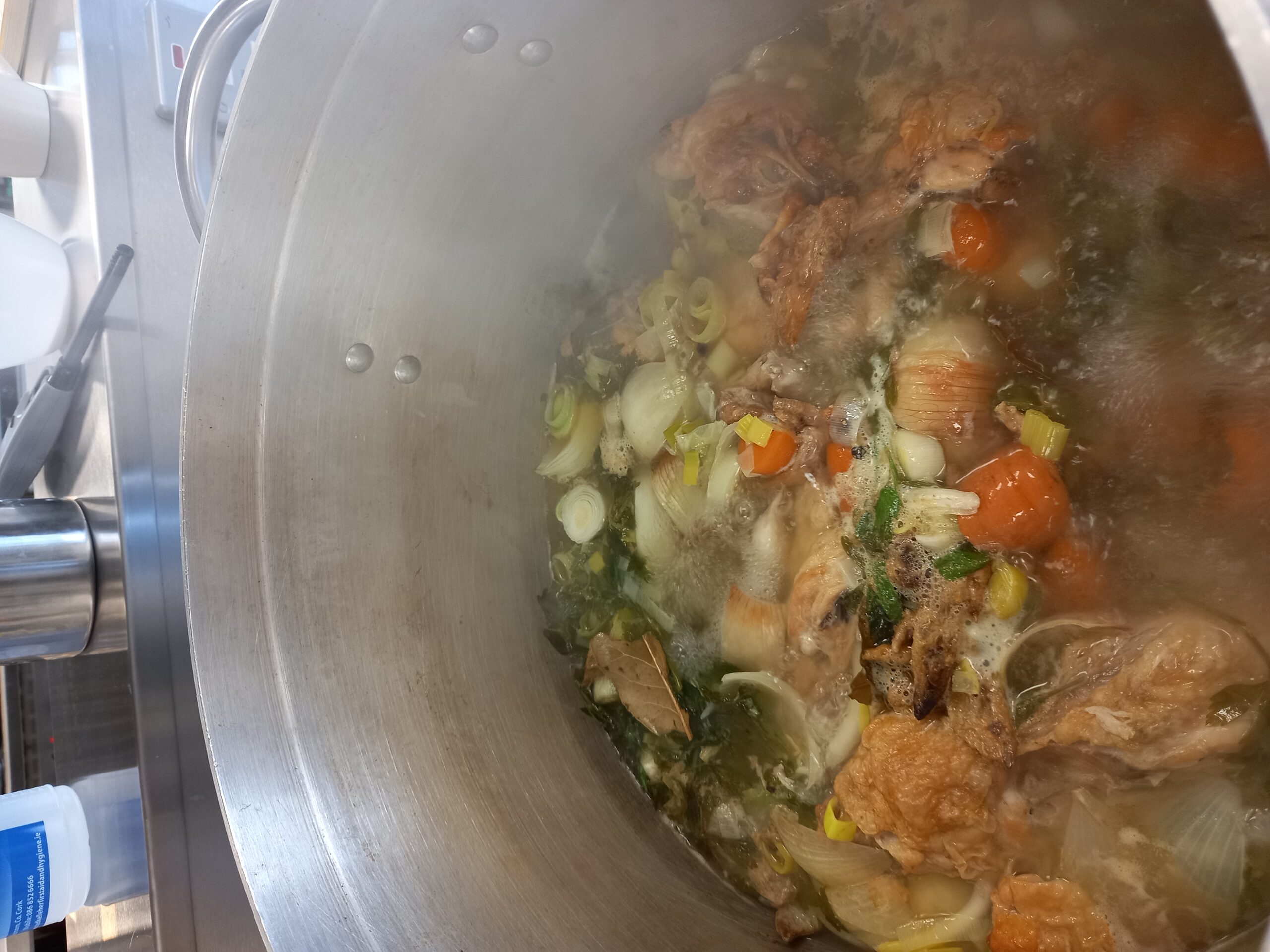
Competence: Supporting fairness, Systems thinking
Talk with the class about how things went in the past. Are there any practices that support circular economy and should be continue in our days? For example, reuse of things, repairs instead of throwing away, diversity instead of industrial agriculture, etc.
Sources
Competence: Supporting fairness, Promoting nature, Collective action
Discussing the phenomenon of urban gardening, sharing ideas for local opportunities, and encouraging students to participate in such initiatives.
Examples
Competence: Supporting fairness, Critical thinking, Exploratory thinking, Individual initiative
Sustainability needs to be applicable to and by everyone no matter their socio-economic situation and costs of products. But how will it work in practise? Educate learners to think innovatively in a cost-conscious manner. Ask students to look around in their household and find fair trade products.
Possible topics to discuss in class:
- What does Fair Trade mean? Why should we use these products?
- Analyse different logos and possible green washing of supply chain.
- Identify why local/organic food is more expensive than fast food. Sustainable products need to be developed for mass consumption – Needs to be cheaper.
- What is the situation in your region? (Local certifications, local products etc.) Are there any controversies (e.g., greenwashing)?.
Sources
Competence: Supporting fairness, Problem framing, Political agency
It is important to learn about the bad side of tourism such as prostitution and exploitation of people and especially of children. Provoking questions can help understand these issues, e.g. Is prostitution always bad as far as it is legalized and commonly accepted in certain European union countries?
Sources
Competence: Supporting fairness, Systems thinking
Transnational projects like Erasmus+ programme allow students to visit other countries and destinations, and meet and work with local people. Sharing knowledge and experience, benchmarking and comparing the different cultures and countries can help better understand the concept of just transition. Discussing and comparing the priorities and ideologies regarding sustainability, environment and climate of different countries can also support improving systems thinking. Asking questions about the related costs, cultural background, time phases, not to mention the biological, technical and social systems, can help students better understand sustainability as a whole.
Competence: Supporting fairness, Valuing sustainability
Encourage students to learn from the actions of the previous generations and discuss how to integrate history when creating modern innovations. Ask students to do research on how things worked in the previous generations, and compare the activities with today’s practices. Identify both positive and negative impacts and progresses. Specific topics related to tourism and hospitality to do research about can be methods of preserving and pickling etc. Possible activities:
- Do the research in their family and neighbourhood.
- Do desk research on old practices in their region or country.
- Do desk research about the different movements and subcultures (e.g. hippies in the 60s, New age in 70s, hipsters, tree huggers, animal activists, climate activists etc.) – make timeline, compare them.
- Evaluate old practices based on our current knowledge. Make students realise that what we think is the good way to do things might be changed in the future. For example, this was an official “request” from the Swedish government to avoid having so much garbage on the beaches: Marine skills (in Swedish)
Sources
Competence: Valuing sustainability
Visit a local traditional animal farm with the class and see a farm which is sustainable. Ask about the students’ experiences and feelings.
Competence: Valuing sustainability
Create a digital showroom where teachers and students can send photos and videoclips of places which are important to them. Include explaining how the climate change might affect these places. Although it is important to be aware what is happening in the world, students need to see how they are affected and how they can make a difference. If you want to make an impact, the findings should also be mirrored in the students’ environment and reflect it on the world situation.
Competence: Valuing sustainability
Ask students to collect role models in the area of sustainability, especially in their generation (Greta Thunberg and other influencers). Ask students why they think these persons are role models; if they think there are any controversies related to them; why they think it is important to have such role models; what they think about the role of social media etc.
Further activities can be to investigate the background of the role models, and analyse the content and values of these influencers. Ask students to create content for social media.
Sources
- Seth Godin: All Marketers are Liars (book)
Competence: Valuing sustainability
Discuss with your students what they can get from living a sustainable life. Besides the impact of sustainability on the environment, climate, economy etc., students should also see its effects on individuals.
Sources
Competence: Valuing sustainability, Systems thinking
Start a Pro et Contra debate with the class on what they think is more efficient to achieve sustainability: the mandatory regulations or the voluntary actions? Discuss taxes and their possible impact, e.g. high taxes on fuel, deduction of taxes of alternative cars.
Sources
Competence: Valuing sustainability
Individual and group activities on storytelling in the topics of sustainability. Try using proverbs for storytelling.
Sources
- Seth Godin: All Marketers are Liars (book)
Competence: Valuing sustainability, Exploratory thinking
Get your class out of their own little bubble where they only hear and see things that are familiar. Discussions with exchange students and teachers or experts on sustainability topics can provide insight on how things are done in other countries or cultures.
Sustainability is not a subject but should be included in everything. Students should broaden their horizon and understand that this is not just something we learn in school.
Sources
Competence: Valuing sustainability, Critical thinking, Adaptability, Exploratory thinking
Help students better understand the current sustainability systems and approaches by showing examples.
Possible actions:
- Experiential learning using field work/site visits in support of project work to reaffirm that humans are part of nature.
- Utilisation of narratives to re-frame perspectives/points of view on the natural world emphasising the importance of sustainability.
- Teach the concept of re-wilding and land sequestration for biodiversity preservation.
- Teach students how to define their values and apply same to sustainability practices. Create group discussions about individual values, and apply them to economic life and sustainability. Reflect on how it is possible to implement these values in real life situations, and how to avoid forcing our values on others.
Sources
Embracing complexity
Competence: Critical thinking, Exploratory thinking
Let the students take on a persona like “young woman in Thailand” or “farmer in Germany”. Discuss what they would say about sustainability or climate change. Ask students to create presentations or project work in those personas.
Competence: Critical thinking
Different role play and interactive tasks to strengthen the critical thinking of students on sustainability.
- Class debates e.g. on nature vs pollution.
- Project work on comparing different companies such as fast-food restaurants and hotels.
- Questioning normative thinking, for example by collecting evidence to prove hypothesis.
- Developing case studies to help students to integrate evidence.
Competence: Problem framing
Watch videos and discuss the problems of the fast fashion industry as a great example for the challenges of sustainability. It is a tangible and real-life problem example that can help better understand the complexity of sustainability, climate change and other impacts.
Sources
Competence: Problem framing, Futures literacy
Use statistics and climate models to show what might happen in the future in your city/region/ country. Put the statistics into context, and simplify them by offering examples that can be understood easily. Build awareness of optimistic, pessimistic and realistic climate change models and predictions. Try to offer a step-by-step process for scenario building, for example:
- If we do this, we can live on without problems.
- If we do this part, we can live with high barriers at the waterfront.
- If we don´t do anything, we have to move into the mountains because all the seaside cities will be flooded.
In addition, explain the difference between weak and strong sustainability, and discuss the possible role of technology in the future.
Competence: Problem framing
Bring examples of this approach to your class regarding tourism and hospitality, and discuss the benefits and challenges.
Sources
Competence: Problem framing
Give tasks for the class to better understand how to identify problems, how to find solutions and how to implement them. For example, bring up the topic of needs for sustainability vs current legislative framework. Is the current legislative system satisfactory? What is missing?
Cooperation with local businesses can also help here: by visiting them or via traineeships, involve them to help discuss how to identify and manage problems.
Sources
Competence: Systems thinking
Discuss topics of global trade and its complexity, for example:
- Sometimes we have too many choices in the shop from one product. Do we really need that many different choices?
- Should we choose imported vegetables/fruit or start using seasonal food?
- How will climate change affect the international trade of agricultural products?
- What are the advantages and disadvantages of the controversial methods and tools in agriculture such as chemical fertilizers or genetically modified organisms?
Sources
Competence: Systems thinking
In order to support the competence of systems thinking, games are great tool to help the holistic and complex understanding of different approaches. Such game is, for example, “Circula – The Circular Economy and Entrepreneurship Game”. This activity encourages creative teamwork while the gamified approach allows players to see circular economy, especially from entrepreneurial point of view. Circula materials can be used free of charge in the classroom, materials can be downloaded the from their website.
Sources
Competence: Systems thinking, Problem framing, Adaptability, Exploratory thinking, Individual initiative
Show examples on how stakeholders in tourism and hospitality sector in your region or country have adapted to climate change or what innovative ideas have been implemented for sustainability. Discuss with the class what the identified problem was and what effects it had on the offered services, sector, local citizens, tourists etc. Elaborate the differences between the new developed idea and the traditional/general methods or how it is done in other countries. You can also ask students to write an essay or do a presentation on further local examples.
Sources
Competence: Systems thinking, Valuing sustainability
Plan dishes and sample menus with sustainability in the focus. Consider the environmental impact of the ingredients including what is needed for growing plants/farming animals, if these materials available locally or transportation is necessary etc. Discuss what smaller and bigger, system-level working methods can help cooking in a more sustainable way.
Sources
Envisioning sustainable futures
Competence: Adaptability, Futures literacy
What if there’s no waste? Is it possible to live without waste? Discuss the different types of waste, and how they could be replaced, especially in a workplace. Beyond discussions, students can prepare videos or presentations on what future generations might say about us in the future, or how students imagine a world without oil. Ask students to envision the life of their grandchildren.
Source
Competence: Adaptability
Discuss sustainable goals, choose one goal and try to come up with possible solutions. Focus on challenges related to tourism and hospitality.
Source
Competence: Adaptability
Ask students to come up with ideas for simple games, for example, practising selective waste collection.
Source
Competence: Adaptability, Individual initiative
Explain students the “learning by doing” concept and teach them how to reflect on different cases and how to do better next time in their profession. Introduce or collect simple, practical and real-life steps even they can implement easily on their own.
Source
Competence: Adaptability
Group activity or project work for students on exploring their own region and the possible effects of climate change there, especially in their sector. Explain them the different climate scenarios, and how they can use them in their sector.
- What do future scenarios mean in their local region? How will the climate, seasons and environment change?
- What can these predictions mean in tourism and hospitality? (Changing touristic seasons, new insects, changing local ingredients etc.)
- What future skills, business innovations and model change might be necessary?
Competence: Exploratory thinking
Ask students to look around and collect what products with eco-friendly label they have at home. List further products they know. Try to find eco-friendly labelled alternative products for ingredient, equipment and other materials.
Competence: Exploratory thinking, Problem framing
Create mixed groups of students to work on problem-solving activities.
Source
Competence: Exploratory thinking
Explain and practice the lateral thinking method from Edward de Bono with your students, and adopt it to their sector in terms of sustainability.
Source
Competence: Exploratory thinking
Ask student to prepare SWOT analysis of the tourism & hospitality sector in their city or region, for a tourist attraction, a past or future project etc.
Competence: Futures literacy
Ask students to imagine a 100% sustainable world or country or city. How can we achieve it? How are things working there? (infrastructure, waste collection, transport, restaurants, tourism etc.) What is the difference compared to our current lifestyle? Use mentimeter to collect their ideas.
Competence: Futures literacy
Discuss what can make a city sustainable. Check out the Global Destination Sustainable Index and their indicators. List approaches and interventions on how we can improve our services in tourism and hospitality sector for a better sustainability.
Source
Acting for sustainability
Competence: Political agency
To navigate the political system, identify political responsibility and accountability for unsustainable behaviour, and demand effective policies for sustainability.
Research regional/local/national systems and advocate for more vocational trained staff. Organize advocacy raising training and give examples of effective policy. Promote food traceability.
Ask open questions and give practical tasks:
- What different ministries should do for sustainability?
- Providing information about the decision-making system
- Organizing meetings with local politicians and experts (municipality, NGOs, businesses)
- How much plastic we have at home (students take the plastic to school), what can we do with this plastic recollecting, where we are going to throw this plastic
Source
Competence: Collective action
Bring the farmer and the hotel manager to your classroom to discuss how they work with sustainability. Before the person comes, students make the questions and ideas how the farm/hotel could work more sustainability and check the list.
Collaboration with Businesses/NGOs and organisations to develop programmes and policies
Possible actions and practical tasks:
- Group working/group projects
- Involving students to voluntary actions
- Collaborations between companies and schools
- Cooperation instead of activism
- Peerlearning
- Debate, performance, plays to get the message across without force
- Visit green or local or organic farms (or videos of them)
- Find a workplaces which works according to sustainable values
- Make a menu for every season with local products (Visiting local farms)
- Spread the message among students: Local/regional emphasis initially
- Use of social media
- Contribute to collective interests for sustainability
- Always start at a local level
- Contacting ministries
- Campaigns
- Letter writing/Email campaigns
Source
Competence: Individual initiative
Possible actions and practical steps:
- Audit activities
- Ecological footprint calculators
- Active citizenship
- Self-auditing (daily activities)
In class activities:
Provoke students with competition – Who is recycling the most? OR Who works the best according to sustainability? Teachers give suggestions and a SD coordinator chooses the best.
Spread the message among students:
- Take small steps, you don´t have to change your whole life today
- See it as a project – the goal, and all the steps to get to the goal. And celebrate each step
- Create the recycling system at home and follow it every week. Take a photo and show it in the class.

